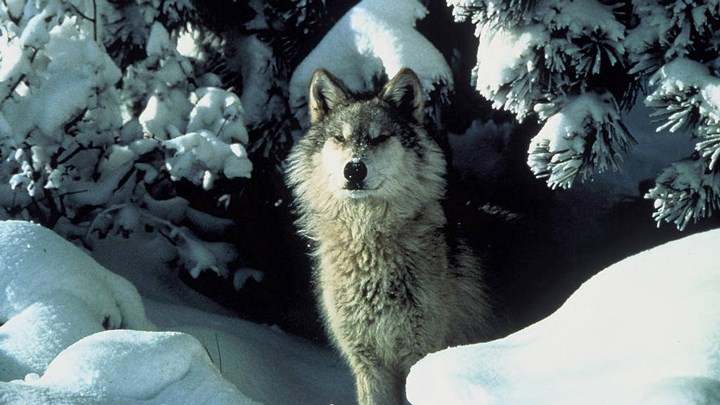
by Phil Phillips - Monday, November 22, 2021

On Nov. 12, U.S. government attorneys and hunter-backed wildlife conservation groups including the NRA and Safari Club International asked a federal judge in Oakland, Calif., to uphold the Trump administration’s 2020 decision to lift Endangered Species Act protections for gray wolves as wildlife science shows the species has recovered. For months they held that federal protections are no longer necessary and that legal, regulated hunting will help to keep gray wolf populations in check while anti-hunting groups argue to restore ESA protections as hunting could reverse the species’ recovery. The hearing also focused on a more obscure legal issue as to whether gray wolves were properly classified under the ESA prior to being delisted last year.
According to Michael Eitel, an attorney with the U.S. Department of Justice’s Environment and Natural Resources Division, they were not, due to changes to the ESA by Congress in 1978. Those changes explain that if a currently listed entity is not a species under the ESA, then it must be delisted. Eitel argued that the gray wolves at issue do not comprise a valid “species” distinct from a smaller number of wolves not included in the decision to lift U.S. Fish and Wildlife Service (USFWS) protections.
“Congress was very clear in the statute,” said Eitel. “If there is not that species, the service does not have the ability to regulate it.” Attorneys for anti-hunting groups countered that the government was attempting to “skirt its obligations” to wolf recovery and that protections are still needed. U.S. District Judge Jeffrey White has yet to issue a ruling as both sides prepare to dig in their heels for the foreseeable future.
The lawsuit includes wolves in the West and Midwest, starting with all or portions of six states in U.S. Rocky Mountains spanning all of Idaho, Montana and Wyoming and portions of Utah, Oregon and Washington. In the Midwest, western Great Lakes populations include a reported 4,400 wolves in Michigan, Minnesota and Wisconsin.
Earlier this year, Wisconsin’s week-long hunt across six wolf management zones had to be closed after only 48 hours. After 135 wolves were killed in just two days—16 more than the state's target of 119—officials rushed to shut down the season. The fall 2021 season remains on hold due to litigation. The Wisconsin Department of Natural Resources’ goal is to maintain 350 wolves, but an estimated 1,000-plus roam the state. As the NRA Hunters’ Leadership Forum (HLF) website shared, anti-hunters claim wolf populations are “too small” to support hunting and that the animals are “too majestic to kill” while Wisconsin farmers and other rural residents complain that wolves are killing their livestock and pets.
Unfortunately, it appears anti-hunters are purposely ignoring that any USFWS decision to remove a species from ESA protections is based on wildlife science. Gray wolves would not have been removed from federal protections in the first place and had their management returned to the states if they did not meet delisting requirements. That decision is based on science, which takes into account factors such as population size, stability and quality of habitat, and control or elimination of threats. Anti-hunters say protections are needed because gray wolves do not populate their entire historical range and should keep expanding in California, Colorado, Oregon and other states.
If you are scratching your head over how we got back to litigating over the already delisted gray wolf, it’s understandable. As for what set the latest round of litigation in motion, in September the NRA HLF website reported the Biden administration announced it would stand by President Trump’s common-sense decision to lift ESA protections on the recovered species. Then, just weeks later, it flip-flopped under pressure from animal rights extremist groups and environmentalists who seemed to expect the new president to alter America’s gray wolf policy and relist the species. They were right, and the abrupt reversal was no surprise as Biden has flip-flopped on nearly every issue he ran on. Federal officials agreed to reconsider restoring gray wolf protections based, in part, on lessened hunting restrictions in Montana and Idaho. The issue will take months to review and debate.
In the meantime, the wildlife management tool known as legal, regulated hunting is working to keep gray wolf populations in balance and minimize their attacks on big game herds and livestock. Please stay tuned as we await the next move.
E-mail your comments/questions about this site to:
[email protected]
